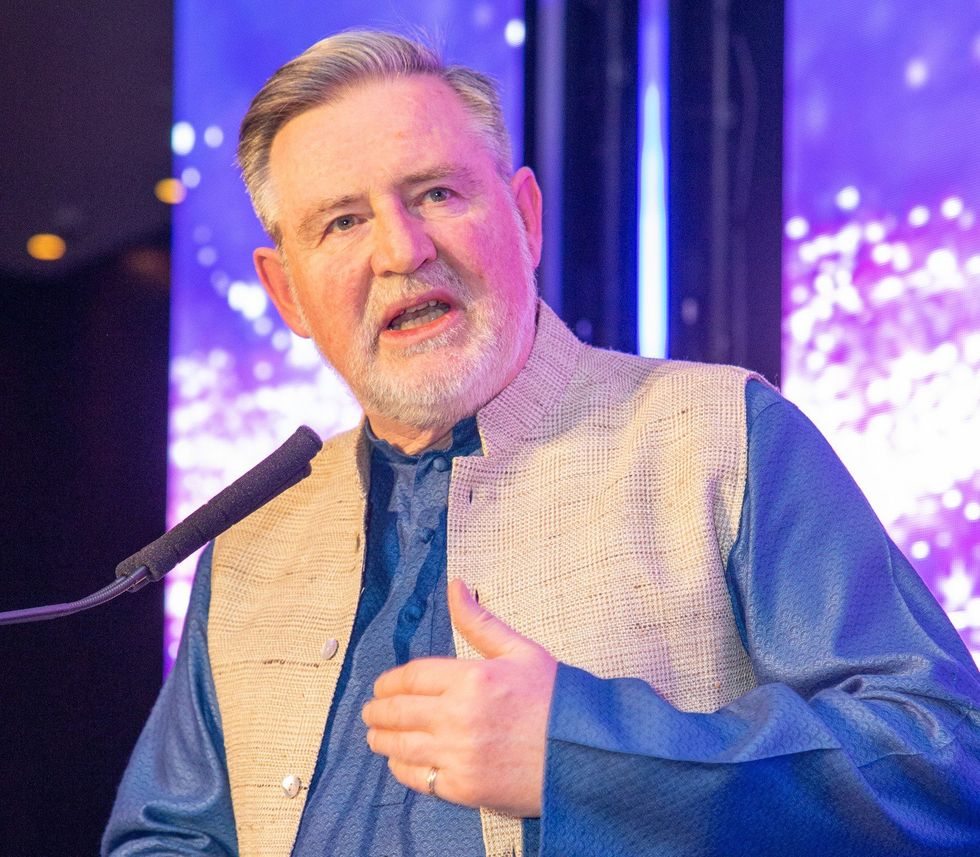“I NEVER wonder to see men wicked. I often wonder to see them not ashamed.”
Had Jonathan Swift been alive today, he might well have had our home secretary in mind. Last week she showed no shame as her inaccurate assertion that “100 million people could qualify to come here” set off yet another round of dog-whistle politics on the subject of immigration and refugees.
Fact: there are 100 million displaced people in the world.
Fact: 75 million of them have never left their own country. They are displaced within it, sometimes by war, sometimes by natural disasters.
Fact: refugees are defined in international law as people who have “a well-founded fear of persecution in their country of origin”. No other type of displaced persons has a right to come to the UK and claim asylum here.
Our country has offered sanctuary to many refugees over the past 200 years. The truth is that neither the Jews fleeing pogroms in the 19th century and later the Nazis in the 20th, nor the East African Asians in the 1970s, the Bosnian refugees in the 1990s, or the Syrian refugees over the last decade were always ‘welcomed’ when they first arrived. But over time they prospered and became an integral part of our cherished settled community giving it its unique and diverse culture and contributing to it far more than they had ever received.
So when we talk of those arriving in small boats across the Channel, we should remember that these are some of the most talented, courageous and enterprising people who may one day become the leaders of our country.
When the UK pulled out of Afghanistan, we abandoned those people who had worked with us for 20 years to defeat the Taliban, defeat terror, and create a better future, especially for women and girls. Sadly, thousands were left there – terrified because they had dared to become doctors or simply wanted to go to school.

Others managed to flee to Pakistan, but now find themselves trapped there, unable to join the rest of their family in the UK. These people are refugees. They have a ‘well-founded fear of persecution’ and a year ago last January, the government announced a new ‘safe and legal route’ for them.
At the time I was delighted. But as the year dragged on, it became clear this was a sham. In the entire 15 months since January 2022 the UK has accepted just 22 individual refugees on that safe and legal route.
Is it any wonder then, that last year 8,500 Afghan refugees made the dangerous journey across the world to come here to join family and loved ones? The last tiny, dangerous leg of that journey was in small boats across the channel from France. What are they supposed to do to keep their children safe? There are no safe and legal routes for them.
Yet it is these very people that our government now punishes by their new law. They are not the criminals. The criminals are the gangs who prey on their vulnerability and often lead them to their deaths. But these people who have been through so much, are now told they cannot ever receive protection or become British citizens, and they will be deported to a place most of them have never heard of.
Of course, we need to stop the criminals who profit from this deadly trade. Of course, we must stop the deaths in the Channel. And of course, not everyone who does come, has the right to be here. That’s why it would be better to spend the £140million we have given to Rwanda on crime enforcement tackling the gangs. That is why we need to create genuine safe and legal routes, including delivering on our promises to those living in hiding and at risk in Afghanistan.
Jonathan Swift spoke of his surprise that people did not display any shame for their actions. This week, Conservative politicians who had shown no concern that the chairman of the BBC was a major donor to their party and had even facilitated a loan to their then prime minister, were suddenly incandescent that a thoughtful BBC sports presenter should be “so partisan” as to tweet his disgust at the government’s immigration policy.
We should be happy that some of our sporting heroes and celebrity pundits actually have the moral sense to speak out, like Gary Lineker did. Sadly, many in the media have now tried to shift the focus from the issue itself to Lineker’s comments about it.
In the wake of the Second World War European nations, including Britain, came together to promise ‘never again’ to allow such atrocities to be committed by humankind. This promise was enshrined in the Declaration of Human Rights and later the Refugee Convention that established the right to protection for those fleeing persecution across borders regardless of how they were forced to travel.
On Monday (13), this government introduced in parliament new laws that would extinguish those rights for refugees arriving in Britain in the future. That we could have a government intent on abandoning both international and human rights law for political ends should make us all fearful of the sort of state that we now live in.




‘Stop dog-whistle politics in debate about asylum seekers’
Ministers urged to offer ‘safe and legal routes’ to refugees fleeing persecution